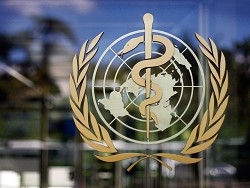 We tried to understand the most common myths about vaccination.
We tried to understand the most common myths about vaccination.
None of the areas of health do not cause a number of disputes as vaccination.
To understand, where truth and lies helped the staff of Rush University Medical Center, preparing seven of the most common myths about vaccines.
Myth 1: Vaccines cause autism
Fact: Between the vaccine and autism there is absolutely no connection. Scientists still debate about what causes autism in the child, however, many came to the conclusion that the disease begins somewhere in the womb and has nothing to do with the vaccination. By the way, the author of the article, which said the risk of autism after vaccination, was stripped of his medical license.
Myth 2: the Child is not necessary to vaccinate as early as infancy
The fact that in infancy the body is more exposed to the risk of diseases such as whooping cough, measles and diphtheria. Vaccination is carried out at such an early age in order to protect the baby from getting disease in the first months of life, when the disease can cause more serious consequences.
Myth 3: vaccination schedule is too aggressive and needs to be stretched
Fact: the immunization schedule is determined by dozens of medical evidence showing that there is an optimum window of time when vaccines are most effective. The transfer of the grafting, which is often asking parents, may reduce the effectiveness of the drug.
Myth 4: Vaccines can cause the diseases they are designed to prevent
Fact: the Vaccine cannot cause disease, as it does not contain active viruses or bacteria. The purpose of vaccination is to stimulate the immune system to produce antibodies required for protection from disease. In essence, inactive infection “tricks” the immune system, which thinks that there is a threat and starts to fight with her. In very rare cases the vaccine can cause a slight fever or minor swelling, but actually sick from vaccinations impossible.
Myth 5: Vaccines contain dangerous toxins
Fact: This myth can be considered true only in part, many drugs really contain aluminum, mercury and formaldehyde. But despite the terrible name, these substances improve the vaccine, so as to guarantee that it is sterile. The number of such toxins in vaccinations too scanty to cause at least some consequences.
Myth 6: Efficacy of vaccines has never been proven
Fact: There is scientific evidence that vaccines are extremely effective. For example, you can take introduced into the United States in 1963, the measles vaccine.
In the period from 1958 to 1962, there were more than 503 thousand disease cases and 432 deaths. In 1965 the number of patients with measles Americans made up 89 people, and none of them died. Very eloquent figures.
Myth 7: Refusal of vaccination can only affect my baby
Fact: unfortunately, a few tragic cases have proved that it is not. Many parents refuse vaccinations for specific diseases, as it is today is virtually absent, although once killed thousands of infants. In the case of a vulnerable child, the disease can flare up again, there is a risk of emergence of new strains, which will require new drugs.








